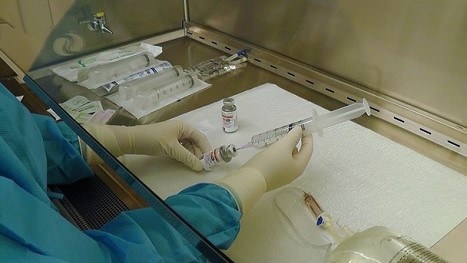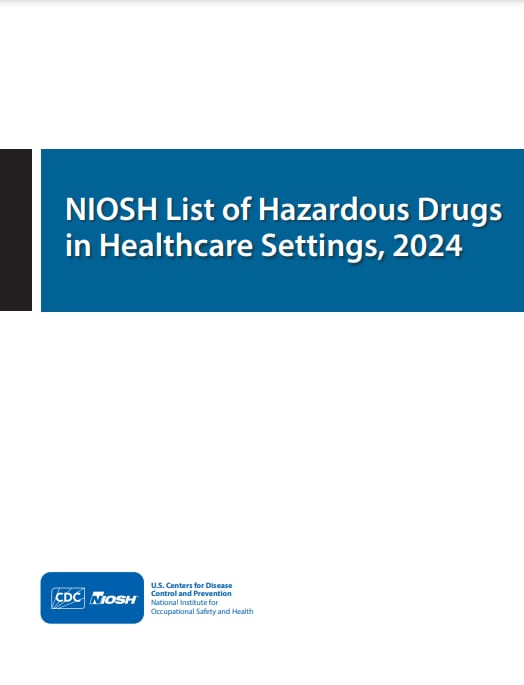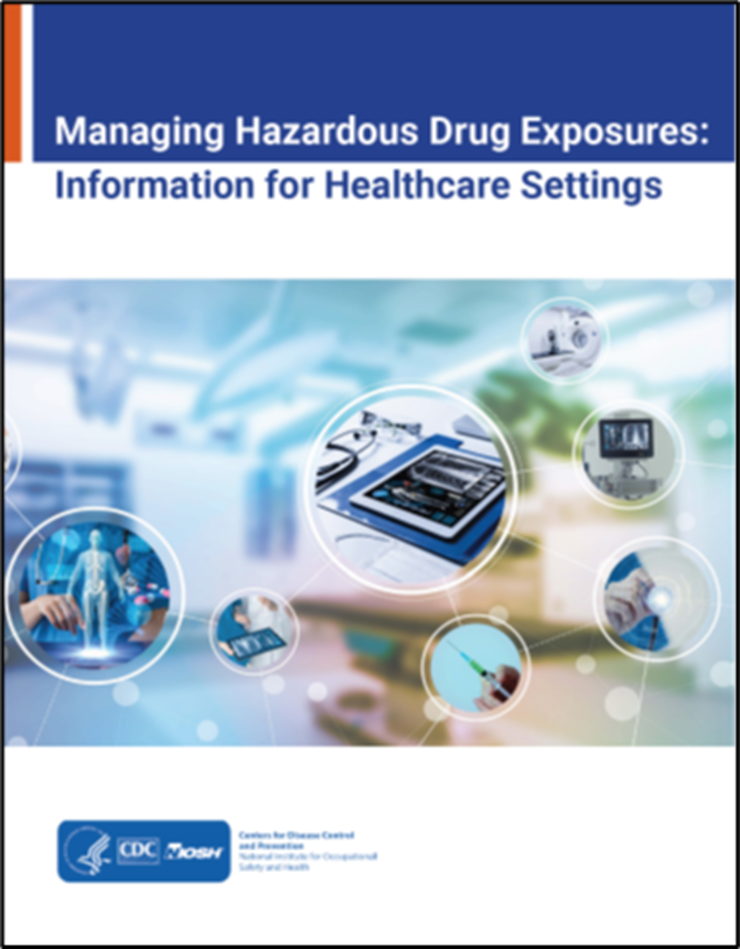At a glance
- The NIOSH List of Hazardous Drugs in Healthcare Settings, 2024 is now available!
- Up-to-date information and resources on Hazardous Drug Exposures in Healthcare.
- NIOSH has developed a suite of tools to help identify hazardous drugs and how to handle them appropriately.

Recent hazardous drug publications
Who is at risk?
Healthcare workers who prepare or administer hazardous drugs (e.g., some cancer therapy, antiviral, hormone therapy, and bioengineered agents) or who work in areas where these drugs are used may be exposed to these agents in the workplace. About 8 million U.S. healthcare workers are potentially exposed to hazardous drugs, including:
- pharmacy and nursing personnel
- physicians
- operating room personnel
- environmental services workers
- workers in research laboratories
- veterinary care workers
- and shipping and receiving personnel.
Acute and chronic health effects
Published studies have shown that workplace exposures to hazardous drugs can cause both acute and chronic effects such as:
- skin rashes
- adverse reproductive outcomes (infertility, spontaneous abortions, congenital malformations)
- possibly leukemia and other cancers
The health risk to a worker depends on how much exposure the worker has to these drugs and the toxicity of the drugs.
2024 Hazardous Drugs in Healthcare Settings now available
This publication assists employers in healthcare settings with workers who handle, prepare, dispense, administer, or dispose of hazardous drugs. This publication is part of NIOSH's efforts to provide resources and tools to support healthcare employers and workers health and safety.
NIOSH has also published two final determinations to remove the drugs liraglutide and pertuzumab from the list, available here.
This document is part of a suite of tools developed to assist with identifying hazardous drugs and handling them appropriately:


